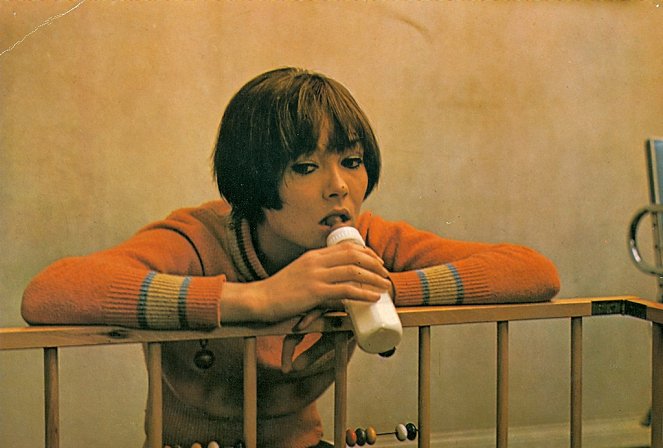Rendező:
Roland KlickForgatókönyvíró:
Roland KlickOperatőr:
Robert van AckerenZeneszerző:
Roland KlickSzereplők:
Sascha Urchs, Ulrich Beiger, Sieghardt Rupp, Renate Roland, Jürgen Jung, Philipp Sonntag, Gerda-Maria Jürgens, Edith Volkmann, Hans Kahlert (több)Tartalmak(1)
This film about a boy who kills his sister shocked the German audiences – its original style and tormenting unambiguousness is breath-taking even nowadays. Roland Klick, a phenomenon in German cinema that defies all labels, contrived a seemingly reserved but perfectly thought-through story of morals, provincialism and egoism. (Summer Film School)
(több)Recenziók (2)
Filmed with a cold, nearly documentary-like approach, Little Vampire tells the story of a boy who, for no apparent motive (possibly due to the influence of an unhealthy family environment), commits a cold-blooded act. At the time of its release, given its authenticity and depiction of an unusual child killer character, this flick must have been quite unprecedented and disturbing. Today, Little Vampire is waiting to be rediscovered and definitely deserves more attention. [Summer Film School 2018]
()
For his feature debut, Roland Klick found inspiration in newspaper articles reporting on unrelated murders committed by children. Instead of a superficial scandalisation or a moralistic appeal, however, he presents to viewers a complexly multifaceted picture of a contemporary small German town. At the same time, he incorporated into the screenplay a reflection on his own adolescence and the dynamics of his family’s household. He shot the film in his parents’ house, not because he wanted to emphasise the autobiographical storyline, but because he had thought out the scenes and camera movements precisely with respect to the arrangement of the given space. The narrative establishes a web of characters connected by little Achim, who kills his younger sister seemingly without reason and without remorse, and then guiltily disposes of her body. Klick builds tension around the act and the subsequent disposal of the corpse with excruciating precision. Through the other family members and their friends, he concurrently depicts small-town life as an essentially superficially ordered world dispirited by hopelessness, boredom and unfulfilled dreams. In its time, Little Vampire elicited tremendous outrage among critics and a substantial part of the audience, not because of the film’s subject matter, but because of Klick’s handling of it. Contemporary reviews chastised him for not taking a judgemental position toward the character of the young murderer and for not offering any clear-cut conclusions. Klick’s debut thus established his position as a wilful outsider in contemporary German cinema. With his creatively distinctive films, which at the same time were attractive to viewers, Klick irritated both his fellow travellers from the “young German cinema” and later the "new German cinema", as well as fans of uniform genre products. Today, Little Vampire is one of the celebrated milestones of German cinema, which, because it did not bow to any of the trends of the time, has lost none of its stimulating effect or expressiveness, even though it primarily relates to the German economic miracle of the 1960s. [written for the 2018 Summer Film School]
()


Hirdetés